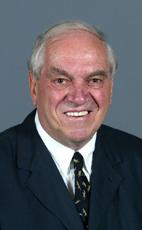That may be another reform we will come to one day, Mr. Speaker.
I expect the Prime Minister chose his candidate over the local democratically elected candidate.
I was glad to hear that my Conservative friend, the hon. member for Edmonton—Sherwood Park, is likely to vote for the bill. I am encouraged by that.
He made a references to unions somehow financing the NDP and that this is somehow a pernicious activity. I make the point that financing to the NDP was always done by democratic vote by the unions. Any member could have his or her funds democratically withdrawn from the supported party if he or she wanted to, and unlike the corporate donations to the Conservative Party or Liberal Party in the past, the union members had a say in it. Corporations decide unilaterally, whether or not the shareholders agree.
As for my friend from the Bloc, I listened with care and he said that the Bloc Québécois could not have come into being the way it did if the process my colleague is advocating had been in place. I say that is right, and so be it. It is democratic. Back in the 1990s the appropriate thing to have done, in my view, if those members were elected from other parties, was to do what my colleague has said; they should have resigned from the party they were in, in good conscience, sat as independents and then went back to the electorate that had voted for them as Conservatives before and had byelections.
That is what the bill is all about. It is bringing democracy as it affects MPs' behaviour in the House of Commons into the 21st century. We are proposing a change. There have been New Democrats who have crossed the floor, Liberals who have crossed the floor, Conservatives who have crossed the floor. Indeed, the Bloc came into formation because of it.
We are saying that the people of Canada in every constituency do not vote for the man or woman as an individual. I know we are all overcome by high levels of modesty as MPs. Every political scientist who has studied the situation knows that citizens vote 80% to 90% for the party. They believe in the party's program on the one hand or they disbelieve in another party's program and they want to vote against it. The key point in my colleague's bill is that these democratic wishes should be respected.
I refer to the case of the member for Newmarket—Aurora who was elected as a Conservative and ought to have remained a Conservative. If she wanted to leave in good faith, there was an option other than crossing the floor and becoming a cabinet minister, which breeds cynicism among the electorate. She should have resigned her party membership, if she felt that way, sat as an independent and then she could have voted with integrity, if she had wanted to, for the budget. She could have voted as an independent. It should not be the right of an MP to cross the floor, unless he or she is prepared to resign the seat, go to the electorate and let the constituents once again decide.
By the way, this is not abstract talk. I repeat, members of other parties, including ours in the past, have crossed the floor. We want to change that. Roy Romanow, the former premier of Saskatchewan, did what ought to have been done. There was a Liberal member in the Saskatchewan legislature who wanted to cross the floor and join his government. He politely, I am sure, but clearly denied that opportunity. He said to the member that if he resigned his seat, he should get a nomination as a New Democrat, be elected as a New Democrat and then they would talk about joining that party in the provincial legislature. That subsequently was done. That man acted with integrity. He resigned his seat as an MLA for the Liberal Party. He got the nomination as a New Democrat, was elected as a New Democrat by the voters in Saskatchewan, and then and only then was he entitled to be a member of cabinet.
I stress that the bill is designed to combat cynicism. The most pernicious form of cynicism in political life as citizens see it is that from time to time those of us who are elected to office act not in the public good, but in our own good. We act not in the public interest, but in self-interest. That is what we want to minimize, and get rid of whenever we can, in our democratic institutions.
Now that we can all vote as individuals on private member's bills, I urge my friends in all parties to give serious thought to this private member's bill and to vote favourably on this bill that will respect a member's integrity.
If a member has problems with his or her party, the member can leave that party and sit as an independent in good conscience. If the member wishes to go to another party, he or she ought to respect the democratic wishes of the citizens, resign his or her seat and ask the constituents to elect the individual under his or her new party. If that person is elected, he or she could then act as a member of the new party. If it means going into cabinet, so be it, but one would hope that would not be the motivation. If the member was elected simply to further the aims, goals and philosophies of that party, that is good.
That is the kind of system we need in Canada and it is long overdue.

